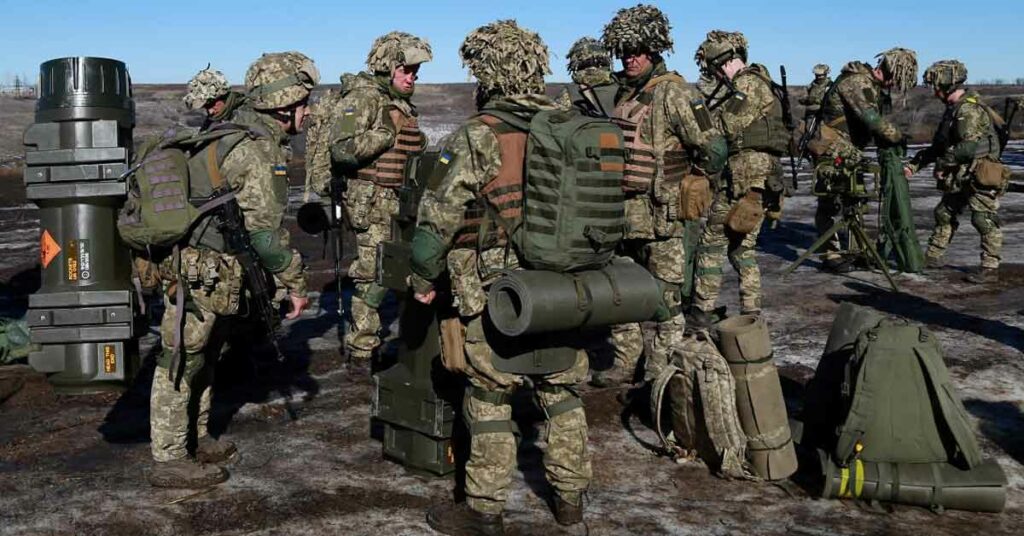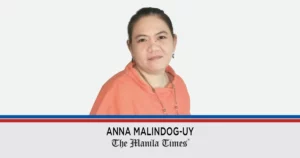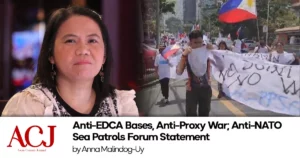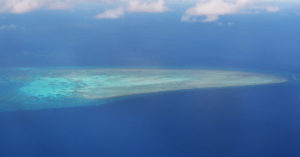
The current military standoff in Ukraine somewhat mirrors one of the most frightening and nerve-wracking episodes of the Cold War, and that’s the “Cuban Missile Crisis” where leaders of the United States (US) and the Soviet Union was engaged in a tense and stressful 13-day political and military standoff in October 1962 over the installation of nuclear-armed Soviet missiles on Cuba just 90 miles from US shores.
The US then was prepared to use military force if necessary to neutralize the perceived threat to its national security, in the same manner, that Russia now is somewhat prepared to use military force as its last resort as an act of self-defence to neutralize the perceived threat to its national security.
Ukraine joining NATO with the possibility of a missile system, military bases, and strike weapons installation on a bilateral basis is an existential threat to Russia.
The distance between Russia and Ukraine is roughly 4,663 kilometres (km), and the Russian route M3 (also known as the Ukraine Highway), a major trunk road, only runs across a distance of about 490 km from Moscow to the Russian border with Ukraine.
Indeed, if one is cognizant of the complexities of the Cold War, the Cuban Missile Crisis was a geopolitical tension during that era caused by the Soviet Union’s reaction to the deployment and installation of missiles in Turkey by the US.
Hence, in the same manner the world is now very much worried about the unpredictability and volatile situation in Ukraine, which could spark another world war if the West and Russia are not able to strike a compromise and conciliatory stance.
Many people across the world, just like in the time of the Cuban Missile Crisis, are troubled about the possibility that the world could be on the brink of a nuclear war.
NATO or North Atlantic Treaty Organization, otherwise known as the Atlantic Alliance, is an international political and military organization of 30 member-states, of which two are located in North America (the US and Canada), 28 are in Europe, and one located in Europe and Asia – Turkey.
NATO Expansionism
NATO’s expansionism seems to be causing the current military impasse over Ukraine between Russia and the West. Russia sees NATO’s expansion towards its borders, particularly the prospects of Ukraine becoming a member of NATO, as alarming and threatening to its national security.
President Vladimir Putin claims that NATO deceived Russia about its expansion.
It can be recalled during a major press conference in December 2021, where Putin said the West had promised the Soviet Union that NATO would not expand “a single inch” to the east. However, Putin argues that NATO has “brazenly deceived” and “cheated” his country.
NATO Secretary-General Jens Stoltenberg responded to Putin’s remarks and said that the alliance “has never promised not to expand.” In an interview with Der Spiegel later, Stoltenberg repeated that “there has never been such a promise, there has never been such a behind-the-scenes deal, it is simply not true.”
Nevertheless, in a report published by RT (Russia Today) last Friday entitled, “West Promised Not to expand NATO – Der Spiegel”, a political science professor at Boston University in the US, Joshua Shifrinson tweeted last Friday (18 February, 2022) that Western diplomats did pledge a NATO non-enlargement, which NATO has denied several times.
In a tweet, Shifrinson said he was “honoured” to work with Der Spiegel on the document showing that “Western diplomats believed they had indeed made a NATO non-enlargement pledge.”
Shifrinson refers to the document which he found in the UK National Archives. The said document had been marked “Secret” but was declassified at some point.
The document dated March 1991 stipulated that the US, the United Kingdom (UK), French and German officials indeed discussed a pledge made to Moscow that NATO would not expand to Poland and beyond.
The document also contained multiple references to the 2+4 talks on German unification. Western officials made it clear to Moscow that NATO would not expand into territory east of Germany.
“We made it clear to the Soviet Union – in the 2+4 talks, as well as in other negotiations – that we do not intend to benefit from the withdrawal of Soviet troops from Eastern Europe,” the document quotes Raymond Seitz, US Assistant Secretary of State for Europe and Canada.
“NATO should not expand to the east, either officially or unofficially,” Seitz added.
A British representative also mentions the existence of a “general agreement” that membership of NATO for eastern European countries is “unacceptable.”
“We had made it clear during the 2+4 negotiations that we would not extend NATO beyond the Elbe” (a major river in Central Europe), said West German diplomat Juergen Hrobog. “We could not, therefore, offer Poland and others membership in NATO.”
The minutes of the 2+4 talks, as stated in the declassified document, later clarified that Hrobog was referring to the Oder River, the boundary between East Germany and Poland. He likewise further noted that West German Chancellor Helmut Kohl and Foreign Minister Hans-Dietrich Genscher had also agreed with this position.
Thus, the West promised Moscow not to expand NATO, but has failed to honour its pledge.
Conversely, after the collapse of the Soviet Union, there were five waves of NATO enlargement, which included its expansion eastward of Europe, taking into its fold eastern European countries that were once members of the Soviet bloc like the Baltic states of Lithuania, Latvia, and Estonia, Poland, Romania and others. Since 2008, NATO has been playing with the idea of signing-up Ukraine, which to a greater extent triggered the alarm button in Russia.
If one looks at the map of Europe, NATO’s expansion moving eastward has brought it one step closer to Russia or just 100 miles closer to Moscow; not only bordering Russia but to a greater extent encircling Russia. These geopolitical realities, by and large, pretty much triggered the current military standoff over Ukraine between the US-led NATO and Russia.
Hindsight And Perspective
To put things into perspective, it is evident that the Russians have legitimate security concerns that the West must come to terms with and respect if the world is to avoid another world war. To ensure its national security, Russia demands assurances from the West (NATO and the US) that Ukraine would never be part of NATO, that NATO will withdraw its forces in Eastern European countries that are already part of NATO and implement the 2015 cease-fire agreement in Ukraine.
Instead of outright dismissing such demands from the Russians and threatening Russia with sanctions as coercive measures, diplomatic efforts should be pursued further to de-escalate tensions and resolve the military impasse in Ukraine. Likewise, the Minsk-2 Agreement should be honoured and implemented by all parties concerned.
Also, western media, NATO and US officials, even President Joe Biden himself, must refrain from sensationalizing the Ukraine crisis. They must stop hyping up the rhetoric of a Russian invasion of Ukraine, which is not helping to stabilize the situation in Ukraine.
In the first place, every time US officials and even Biden are asked if they have tangible and concrete evidence as to when Moscow will invade Ukraine, Biden and some of his security officials declined to elaborate, saying only that “We have a significant intelligence capability.”
Ukrainian officials have to some degree toned down the Western predictions of Russia’s invasion, with the secretary of National Security and Defense Council Alexey Danilov saying the government had not seen any evidence of a looming “full-scale operation” earlier this week.
President Volodymyr Zelensky has also criticized the US and European leaders for inducing “panic” with talk of an attack, suggesting the forecasts have been overstated.
Moreover, just like a game of chess where pawns are used as either the first line of defence or as sacrificial lambs to protect a knight, bishop, rook, queen or king, pawns as usually subject to the manipulations of other powerful pieces on the chess board for survival with the end goal of a winner-takes all scenario.
If one closely observes the situation in the on-going tug of war between the US and Russia over Ukraine without discounting NATO’s role, but taking into consideration that NATO, more often than not, follows the lead of the US, then, Ukraine is a pawn in the geopolitical manoeuvres of the US because of its strategic geographical location in the same manner that the Philippines will most likely be a pawn of the US in its rivalry with China for supremacy in the Indo-Pacific region.
Conclusion
Indeed, the world is once again troubled by the threat of a bloody West-East military confrontation and conflagration, which is threatening not only world peace, security, and prosperity but the very survival of humankind.
Once again, we live in interesting times, and I hope that world leaders will have the genuine interest of humanity in their hearts when the time of reckoning finally arrives.
Source: The ASEAN Post
https://theaseanpost.com/article/ukraine-pawn-us-nato-and-russia



